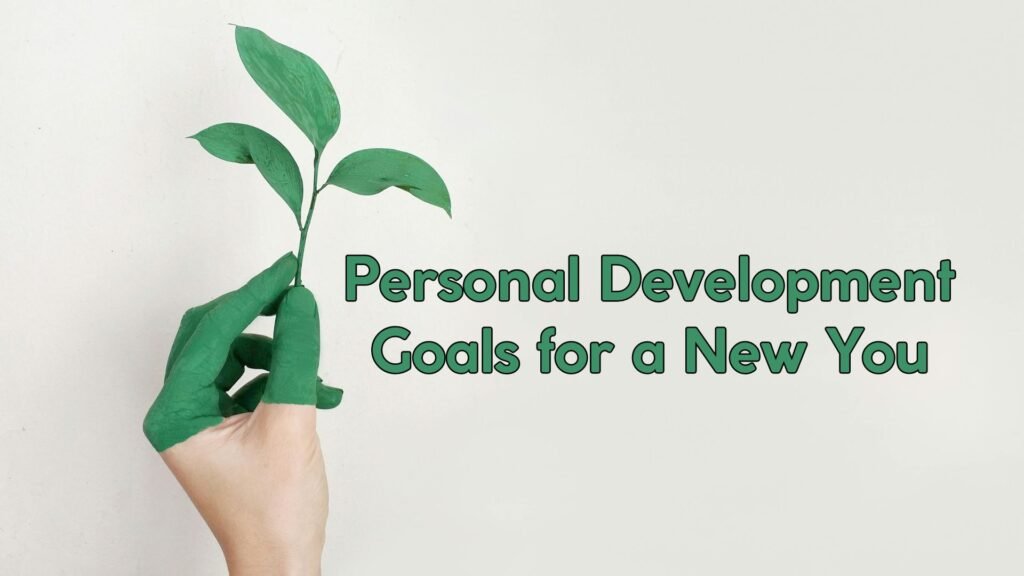Do you often struggle to get out of bed in the morning? Do you hit the snooze button again and again, wishing for more sleep? We’ve all been there, but there’s good news. You can learn to love mornings and wake up feeling refreshed and ready to go.
Mornings don’t have to be a battle. They can be a time of calm, productivity, and happiness.
So, say goodbye to groggy mornings, and let’s dive into the world of becoming a morning person. It’s easier than you think!
The Benefits of Becoming a Morning Person
Becoming a morning person offers a host of benefits beyond simply waking up early. Here’s why you should consider giving mornings a chance:
1. Get More Done
Mornings are often quiet, and there are fewer distractions. This means you can focus better and get important tasks done early. For example, you could start your day by planning what you need to do, and you’ll be amazed at how much you can achieve.
2. Feel Happier
Starting your day with a positive mindset can reduce stress and make you feel happier overall. One simple way to do this is by writing down things you’re thankful for each morning. Thinking about the things that make you happy every morning can help you feel more positive.
3. Stay Healthy
Mornings are a great time to take care of your body. You don’t need to do strenuous workouts – a short walk or some gentle stretching can make you feel good. Prioritizing exercise in the morning can lead to a healthier lifestyle.
4. Enjoy Some “Me Time”
Early mornings are peaceful and calm. You can use this time to do things you enjoy, like reading, drawing, or learning something new. Taking time regularly to work on yourself helps you grow and become a better person.
How to Become a Morning Person
Make it a habit to go to bed early and wake up early
“Turning in early and rising with the sun – it’s like a special formula for becoming a morning person. You’ve probably heard the phrase, ‘Early to bed, early to rise,’ and you know what? It’s more than just a saying; it’s a wise approach supported by science.”
When you hit the hay early, you’re getting your body in sync with its natural sleep rhythms. At night, our bodies make a sleep hormone called melatonin. This hormone helps us feel sleepy and ready for rest. And you know what? Melatonin production likes to follow the sun. As it gets darker outside, your body starts making more melatonin, signaling that it’s bedtime.
But there’s more! Waking up early isn’t just about beating the alarm clock. It’s about getting in tune with your body’s natural schedule. This internal clock also affects when you’re most alert and your mood. So, when you rise with the sun, you’re more likely to feel perky and sharp.
So, how do you make this magic happen? Here are some practical tips:
Gradual Shift: You don’t have to switch your bedtime overnight. Start by going to bed just 15 minutes earlier than usual. Then, gradually move it up until you reach your ideal bedtime.
Dark and Quiet: Make your sleep space comfy, dark, and quiet. This creates the perfect environment for a good night’s rest.
Gadget-Free Zone: About an hour before bedtime, say goodbye to your electronic gadgets. The blue light from screens can mess with your sleep hormones.
Following the ‘10-3-2-1-0 sleep rule‘ can help too. That means
- 10 hours before bedtime: No caffeine
- 3 hours before bedtime: No alcohol or heavy meals
- 2 hours before bedtime: No stressful work tasks
- 1 hour before bedtime: No screen time
- 0 times you hit the snooze button in the morning
Bedtime Routine: Create a relaxing bedtime routine. It’s like a signal to your brain that it’s time to wind down. Read a book, take a warm bath, or listen to calming music.
Early Riser’s Reward: Find something you look forward to in the morning. It could be a special breakfast, a peaceful walk, or some quiet time for yourself. Having a morning ‘carrot’ can make waking up early more appealing.
Limit Midnight Snacks: Avoid heavy meals or snacks close to bedtime. Your body needs time to digest before it can settle down for sleep.
Let Sunlight Wake You Up

Our bodies run on a built-in clock called the circadian rhythm. It manages our sleep patterns, hormone levels, and body temperature. And you know what keeps this internal clock ticking right? Yup, sunlight.
When sunlight hits your eyes, it sends a signal to a part of your brain called the suprachiasmatic nucleus. This tiny region acts as your body’s boss clock, telling it when it’s time to be awake or asleep. Getting sunlight in the morning helps reset this clock every day, keeping it in sync with the natural day-night cycle.
Now, why does this matter? Well, soaking in morning sunlight comes with some cool perks for your overall health:
- Boosts Mood: Sunlight triggers the release of serotonin, a.k.a. the ‘feel-good’ hormone. It’s like a natural mood lifter. Research shows that morning sunlight can help ease feelings of depression and anxiety.
- Increases Alertness: Sunlight also amps up the production of cortisol, a hormone that makes you feel awake and alert. Think of it as your body’s built-in caffeine.
- Improves Sleep: Surprisingly, catching morning rays can help you sleep better at night. Studies reveal that folks who get sunlight in the morning tend to doze off quicker and enjoy deeper, more restful sleep at night.
According to M. Nathaniel Mead in the Environmental Health Perspectives article:
‘When people are exposed to sunlight or very bright artificial light in the morning, their nocturnal melatonin production occurs sooner, and they enter into sleep more easily at night.'”
Some Practical Tips for Sunlight Awakening:
- Open Your Curtains: Begin your day by pulling back the curtains and welcoming natural light into your space. It’s a gentle wake-up call for your body’s internal clock.
- Morning Stroll: If you can, take a short stroll outdoors or spend a few moments in the morning sunshine. The fresh air and sunlight can be revitalizing and help set a positive tone for the day.
- Breakfast by the Window: Opt for having your breakfast near a window where you can bask in the warmth of the sun. It’s a delightful way to start your morning on a bright note.
Adopt the Gradual Approach
Making big changes to your sleep schedule all at once can be tough. Research tells us that our bodies prefer small, gradual shifts in sleep patterns.
So, how can you do this? Start by going to bed just 15 minutes earlier than usual for a few nights. Once that feels comfy, move it up another 15 minutes, and keep going until you reach your ideal wake-up time.
This gradual change helps your body adjust without you lying awake in bed. And for those who say they don’t have time to go to bed earlier, remember, everyone can spare just fifteen minutes. So, with these small steps, you can become a morning person without losing out on sleep.
Know Your Motivation for a Productive Day
To truly transform your daily routine and embrace the early mornings, you need to dig deep and understand why you want to make this change.
Start by asking yourself, “Why do I want to wake up earlier in the morning?” and “What positive outcomes do I hope to achieve through this shift in my schedule?”
Think of it as setting a compass for your journey. Your motivation will be your guiding star, leading you towards your goals.
For example, maybe you want to enjoy the peacefulness of early mornings, when everything is quiet and calm. This can be your inspiration. You can use this special morning time to make a nice cup of coffee, read the news, or just enjoy the quiet. You are creating your own peaceful place in the middle of a busy day.
And when you start thinking about all the wonderful things you can do with those extra morning hours, it can really boost your motivation. Consider the activities you enjoy—whether it’s a brisk morning walk, diving into a new book, or indulging in a hobby.
When you have something to look forward to, it becomes easier to stay motivated and committed to your new routine. So, the next time you set your alarm for an early wake-up call, remember your motivation.
Here are some tips to help you get motivated:
Set Clear Goals:
To stay motivated, it helps to have clear goals. Decide what you want to achieve by waking up early. Do you want more time for yourself? Maybe you want to exercise or enjoy a nice breakfast. Having these goals in mind will make it easier to wake up early.
Imagine Your Perfect Morning:
Picture what your ideal morning looks like. Imagine the peacefulness, the activities you’ll do, and how accomplished you’ll feel. It’s like daydreaming about something you want. This mental picture can inspire you to wake up early and make it a reality.
Remind Yourself Every Day:
Write down your “why” and your morning goals. Put them where you can see them every day. These reminders will help you remember why you’re doing this and keep you on track.
Enjoy Your Morning Routine:
Find things you enjoy doing in the morning. Maybe it’s making a special breakfast, doing some gentle exercises, reading, or just sipping a cup of your favorite drink in peace. Doing things you like in the morning makes waking up early something you look forward to.
Celebrate Small Wins
Every morning you successfully wake up early, even if it’s just a few minutes earlier than usual, is a step forward. These small victories start to build momentum over time.
It’s like pushing a snowball down a hill; it starts small but grows larger and more powerful as it goes. Celebrating these early wins can help you maintain your motivation for the long haul.
When you recognize your achievements, your brain releases dopamine—a chemical associated with pleasure and reward. It’s as if your brain is saying, “Great job! Let’s do that again!”
One effective way to celebrate small wins is by keeping a morning journal. Write down your achievements, no matter how minor they may seem.
Did you wake up a few minutes earlier? Did you make a healthy breakfast? Did you enjoy a peaceful moment? These entries serve as a record of your progress and can be a source of motivation when you look back.
Start Your Day with Purpose

Having a purpose when you start your day can make you more productive. It’s like having a plan that helps you get things done. You know exactly what you want to do, so you can focus better.
To have purpose-driven mornings, you can start by deciding what you want to achieve in the morning. Then, create a routine. A routine is like a plan that you follow every morning. You do the same things in the same order. This helps you stick to your purpose.
Here are some Purposeful Activities for Your Morning:
Mindful Meditation: Starting your day with a brief meditation session can be a purposeful way to center yourself and cultivate a calm mind.
Morning Exercise: Physical activity in the morning can be a great way to boost your energy and kickstart your day with purpose.
Goal Setting: Take a few minutes to set daily goals or intentions. What do you want to achieve today? It’s like creating a roadmap for your day.
Gratitude Journaling: Reflecting on things you’re grateful for each morning can cultivate a more optimistic mindset and set a positive tone for the day.
Learning Time: Dedicate some morning moments to learning something new. You have many options like reading a book, listening to a podcast, or taking an online course.
Creative Time: If you’re artistically inclined, use your mornings for creative pursuits like writing, painting, or crafting.
Planning and Organizing: Review your to-do list, calendar, or tasks for the day. Organizing your day can provide a sense of purpose and direction.
Quiet Reflection: Spend a few moments in peaceful silence, allowing yourself to set your intentions and mentally prepare for the day ahead.
Embrace Consistency: Follow these steps
Consistency in your morning routine creates a natural flow. Your mind and body know what to expect, leading to increased efficiency.
Research into habit formation reveals that it takes an average of 66 days to establish a new habit through consistent repetition. This underscores the significance of sticking to your morning routine for a couple of months to turn it into a natural and effortless part of your daily life.
How to Stay Consistent:
Start Small: Don’t try to do too much at once. Begin with a few simple things in your morning routine, and then add more over time.
Set a Regular Time: Try to do your morning routine at the same time every day. This helps create a routine, like watching your favorite show at the same time every evening.
Use Triggers: Connect your morning routine to something you always do in the morning, like having breakfast. This way, one action leads to the next, making it easier to be consistent.
Reminders: Use notes or alarms to remind yourself of your morning routine. It’s like having a reminder on your phone for important events.
Be Flexible: Remember that it’s okay to miss a day or change your routine if needed. Being consistent doesn’t mean being perfect. For example you can take a break from your exercise routine when you’re not feeling well.
Final Thoughts
Every sunrise is a chance to start fresh and become the morning person you want to be. Keep at it, and one day, you’ll wake up to a morning that’s not just routine but truly remarkable.
So, embrace the consistency, relish the small wins, and stay dedicated to your path. Remarkable mornings are not far off; they’re just a sunrise away.
FAQs
How long does it take to become a morning person?
Becoming a morning person takes time. On average, it might take around two months of doing it every day. But everyone is different, so be patient with yourself.
Can I be a morning person if I’m really busy?
Yes, you can! Even if you have a busy schedule, you can still become a morning person. Start by waking up a bit earlier, maybe just 15 minutes. Then, as you get used to it, you can add more time. Small steps can lead to big changes in your morning routine.
Is it hard to become a morning person?
Becoming a morning person can be challenging at first, but it’s achievable with consistent effort. Start by gradually adjusting your sleep schedule, aiming for a consistent wake-up time each day.
How long does it take to get used to waking up early?
The adjustment period varies, but typically, it takes a few weeks to adapt to waking up early. Be patient and stick to your new routine, even on weekends.
How do I train myself to be a morning person?
Create a bedtime routine that promotes relaxation, such as reading or taking a warm bath. Set your alarm for your desired wake-up time and place it across the room to encourage getting out of bed promptly.






